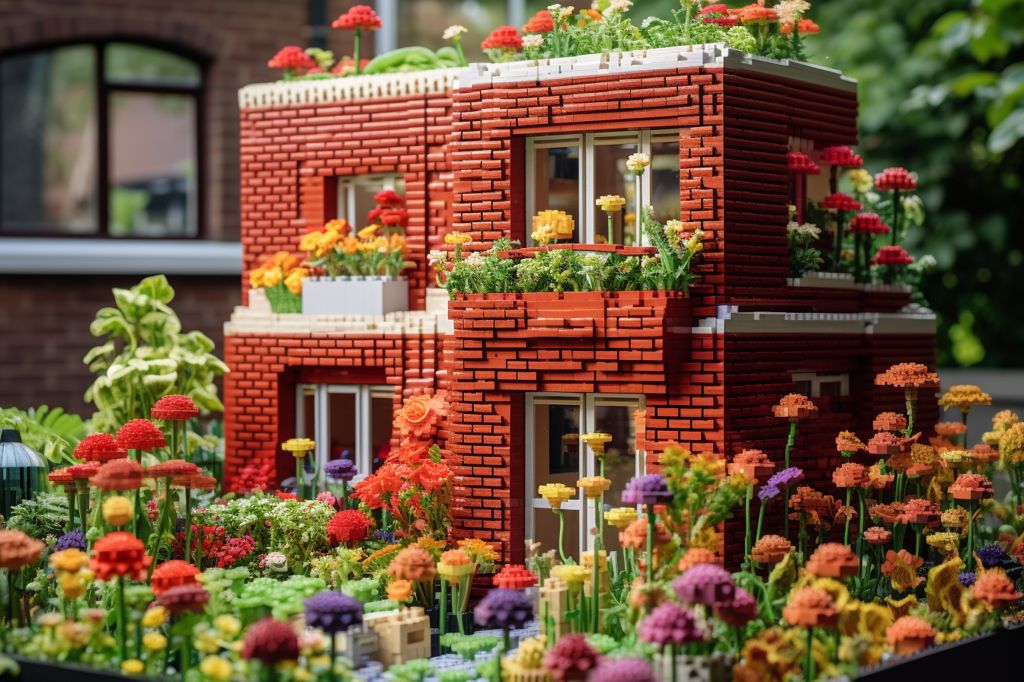Tackling the Plastic Waste Crisis Through Community Engagement
South Africa faces an immense plastic waste crisis, generating a staggering 2.4 million metric tonnes annually, with a mere 14% being recycled, according to the World Wildlife Fund. This leads to polluted rivers, litter-covered beaches, and overfilled landfills. Nonetheless, creative projects are emerging that transform plastic waste into concrete bricks, laying the foundation for eco-friendly housing solutions in Cape Town.
One notable project, spearheaded by the Western Cape’s Department of Environmental Affairs and Development Planning, aims to involve schools in efforts to minimize plastic waste. The iThemba Phakama 4Ps (People, Public, Private, Partnership) project, a partnership between multiple government departments, motivates students from no-fee schools to gather and donate plastic waste from their households and local communities. Since late 2021, recycling hubs have been established at these schools, enabling the sale of plastic waste to organizations and generating job opportunities for both formal and informal waste collectors. So far, the project has amassed over 16,000 kilogrammes of plastic waste.
Ron Mukanya, the Director of Sustainability in the provincial department, underlined the significance of altering people’s views of waste as a valuable resource. He stated, “We’re trying to influence behaviour change in how to see waste differently, seeing it as a resource.” With the project reaching nearly 20,000 homes through participating students, Mukanya aims to double that number within the next year.
From Plastic Waste to Innovative Construction Materials
One company collecting waste from schools is the Centre for Regenerative Design and Collaboration (CRDC), which runs its “Bag That Builds” plastic recovery program. At their Blackheath facility, plastic waste is converted into a fine dust called RESIN8, used to produce bricks, pipes, pavers, and kerbstones. When operating at full capacity, the CRDC plant can process 610 metric tonnes of plastic per month, creating direct employment for 20 individuals and benefiting over 500 waste collectors and reclamation workers.
Abraham Avenant, CEO of CRDC, emphasizes the importance of incentivizing waste collection. He explained, “What we’ve learned is that if you create value from non-recyclable plastic waste, the stuff that people usually just leave out there on the streets, people will actually start collecting that.” He further noted that by encouraging collection, even chip packets and polystyrene cups, which are typically discarded, will be picked up.
RESIN8 bags are subsequently sent to a manufacturing facility in Eerste River, housing Inca Concrete, where they are mixed into various construction products, offering a sustainable alternative to traditional quarried and crushed materials. This method not only recycles plastic waste but also lowers the environmental impact of quarrying. To date, CRDC has collected more than 9,600 kilogrammes of plastic waste, resulting in approximately 124,000 bricks.
Building Sustainable Housing with Eco-Friendly Materials
The Alliance to End Plastic Waste, a partner in the pilot program, states that concrete products containing RESIN8 can be up to 15% lighter and possess improved insulation properties. These concrete blocks are now being utilized to construct homes in Ilitha Park, Khayelitsha, as part of a housing project led by Bitprop, which commenced in 2019. The initiative concentrates on developing rent-generating apartments adjoining homeowners’ properties, with the goal of stimulating local economies.
In 2022, Bitprop began incorporating concrete products made with RESIN8, now accounting for around 70% of the homes under construction. Tashriq Abrahams, an architect at Bitprop, discussed the impact of this strategy: “The construction phase is about 10 to 12 weeks [and] on every project, we employ about 30 to 50 people all from within the community. All our materials are also locally sourced, and that way, we keep money in the township economy.”
The conversion of plastic waste into sustainable housing materials demonstrates the potential for inventive solutions to tackle the escalating waste crisis. By engaging communities, particularly schools, and promoting cooperation between public and private sectors, these initiatives offer an inspiring model for establishing environmentally-conscious housing solutions while simultaneously creating local economic opportunities.








